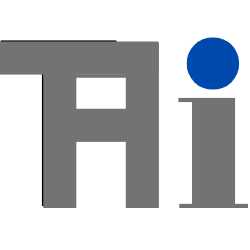The Initial Quest for Answers
So, you’ve probably picked up a self-help book because you’re searching for that golden nugget of wisdom—something that will tell you exactly what to do with your life. Perhaps you’re looking for a career path, a purpose, or some clarity on the right direction to take. Maybe you think these books, penned by successful authors like Tony Robbins or Dale Carnegie, will provide the clear instructions you need. You might have heard how Awaken the Giant Within or How to Win Friends and Influence People changed someone’s life and are hoping for a similar revelation.
The Endless Reading Cycle
You dive into one book after another—Think and Grow Rich by Napoleon Hill, The 7 Habits of Highly Effective People by Stephen Covey, Atomic Habits by James Clear, and Rich Dad Poor Dad by Robert Kiyosaki—hoping each one will have the definitive answer. You keep on buying new book one after another, hoping to find the answers. Yet, despite all this reading, you still find yourself wondering, “What should I do?” The quest for direction leads you down a rabbit hole of books, seminars, and podcasts. You absorb countless pieces of advice and strategies, yet the clarity you seek remains elusive.
A World Full of Options
Part of the confusion stems from the sheer diversity of success stories. Elon Musk is making strides in space exploration and electric cars with companies like SpaceX and Tesla. Jeff Bezos built a massive e-commerce empire with Amazon. Anna Wintour dominates the fashion industry at Vogue, while Warren Buffett has mastered the stock market with Berkshire Hathaway. Richard Branson has a hand in everything from music to airlines to space tourism. With such a variety of paths to success, it’s no wonder you’re left bewildered about what direction to take, and it’s perfectly alright. we understand it.

The Wrong Question
The issue here is not with the books or the advice they offer, but with the question you’re asking. Searching for “what should you do?” can lead you astray. This question implies there is one correct path or answer for everyone, which simply isn’t true. As Tony Robbins famously said, “It’s not what we do once in a while that shapes our lives, but what we do consistently.” This means the consistent application of principles, rather than the pursuit of a singular path, is what leads to success.
The Right Question to Ask
Instead, the question you should be asking is, “How should I do it?” This change in focus can dramatically shift your perspective and approach to success. By concentrating on the “how,” you can adapt the lessons from these books to fit your unique circumstances. For instance, The Lean Startup by Eric Ries doesn’t tell you what business to start but teaches you how to approach building a business with continuous innovation and validation.
The Real Value of Books
Books by successful people provide a wealth of knowledge on how to approach life and its challenges. They offer insights into how these individuals think, make decisions, choose and utilize resources, approach and deal with people, and develop a mindset about money and success. For example, in Outliers, Malcolm Gladwell explores the factors that contribute to high levels of success, such as the 10,000-hour rule, which emphasizes the importance of practice and dedication rather than specific career choices.
Approach Over Answers
These books guide you on how to think and act rather than giving you a specific roadmap. They show you strategies and principles that can be applied to any endeavor. Simon Sinek’s Start with Why emphasizes the importance of understanding your purpose, which can transform your approach to any field you choose. It’s about aligning your actions with a deeper sense of meaning and direction.

Personal Choice and Adaptation
Ultimately, it’s up to you to choose a path that interests you and aligns with your skills. Apply the wisdom you gain from these books to your journey. It’s not about following one piece of advice blindly; even great minds make mistakes and learn from them. Successful people often revise their strategies based on new information and experiences. As Carol S. Dweck explains in Mindset, a growth mindset allows you to adapt and evolve continually.
Choosing and Committing to Your Path
What you choose to pursue should resonate with you personally. Use the teachings from these books as a guide to navigate your chosen path. Malcolm Gladwell’s Outliers illustrates how various factors, including practice and timing, contribute to success, reinforcing that it’s not just about the “what” but the “how.” This is crucial in maintaining your motivation and commitment to your chosen path.
The Courage to Walk the Path
One of the most challenging aspects is not finding the right way but having the courage to follow it. As Brené Brown discusses in Daring Greatly, vulnerability and courage are essential for true success. It’s about showing up and being willing to take risks. The path to success is often fraught with obstacles, and the courage to persevere is what sets successful individuals apart.
Quality Over Quantity
While reading many books is beneficial, finding one that truly resonates with you and absorbing its teachings deeply can be more impactful. It’s about being flexible and continually refining your approach. As Darren Hardy explains in The Compound Effect, small, consistent actions over time lead to significant results. This principle applies to all areas of life, emphasizing the importance of disciplined effort over time.
Conclusion
Keep reading and learning, but remember: no book will tell you exactly what to do. Instead, focus on how to do things right. Find your passion, apply the wisdom you gain, and have the courage to forge your path. As Paulo Coelho reminds us in The Alchemist, “When you want something, all the universe conspires in helping you to achieve it.” It’s about the journey, the approach, and the mindset you bring to your endeavors. The true value of these books lies in equipping you with the strategies and resilience to create your unique path to success.


